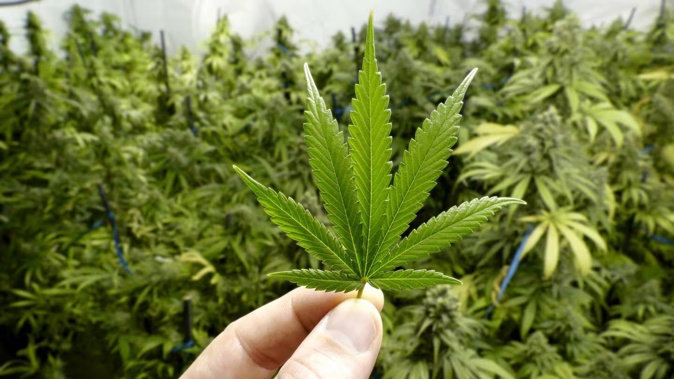

When police raided a South Auckland property in 2022, they not only found hundreds of cannabis plants growing throughout the house - two Vietnamese overstayers were also discovered hiding in the roof space.
The two men, Ha Hai Dinh and Tuan Anh Mai, are both now in prison for cultivating cannabis for what a judge called a “very serious commercial enterprise”.
In addition to the Karaka property south of Auckland where they were found with 338 cannabis plants, each man had another house where he grew smaller though still significant amounts of the drug.
Police went to the Karaka property with a search warrant on September 27, 2022.
They knocked and got no response, so broke down the door and discovered a number of sealed-off rooms.
There were grow tents inside each room with heat lamps on timers, watering systems and carbon filters so that no one nearby could smell what was going on.
Each of the rooms had plants at a different stage of growth, ensuring a continuous supply of cannabis.
“This reflects a very serious commercial enterprise,” Judge Gus Andree Wiltens said when he sent the pair to jail in February this year.
Police called out but got no response when they were looking through the house, but a police dog was brought in and found the two Vietnamese nationals hiding in a concealed area in the ceiling.
A few days later, police found 90 more plants at a Pakuranga property under the control of Dinh, and 136 plants at a Pukekohe house linked to Mai.
Each man was convicted on two charges of cultivating cannabis.
Dinh received a jail term of two years and seven months, and Mai was sentenced to two years and three months.
Both men appealed their jail terms to the High Court as being “manifestly excessive”, arguing they should have been given the chance to serve home detention sentences.
Justice Timothy Brewer acknowledged they might have been given an additional discount for time spent on electronically monitored bail before they were sentenced, but he said the end sentences were not manifestly excessive.
He dismissed the appeals.
When weighing up whether the two men deserved consideration for previous good character, Justice Brewer accepted they had incurred only driving convictions in New Zealand.
“But what tells against good character credit is the fact that both are overstayers,” Justice Brewer said.
“They have lived in New Zealand in breach of their obligations to leave.
“I suspect that is partly why they turned to crime: they could not seek employment in legitimate enterprises if that might attract the attention of the authorities.”
Justice Brewer’s judgment did not specify how long Dinh, who cannot speak English, had been in New Zealand. When caught, he was found in possession of $3500 in cash.
Mai arrived on a student visa in 2010, to study English and then a diploma in business management.
He had worked as a tiler, but lost that job because of the Covid pandemic and then accepted the role of tending to the cannabis plants.
He said he was paid a lump sum of $7000 to tend to the plants at two houses and was going to be paid more once the plants had been harvested. This did not happen before he was caught.
He said that after his father died in 2013, he felt a responsibility to provide financially for his family by sending remittances to them in Vietnam.
Ric Stevens spent many years working for the former New Zealand Press Association news agency, including as a political reporter at Parliament, before holding senior positions at various daily newspapers. He joined NZME’s Open Justice team in 2022 and is based in Hawke’s Bay. His writing in the crime and justice sphere is informed by four years of front-line experience as a probation officer.

Take your Radio, Podcasts and Music with you









